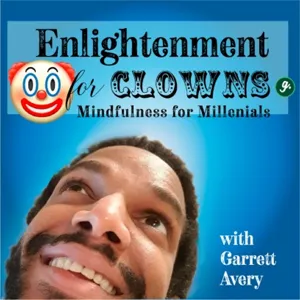Podcast Summary
IHeart Radio Music Awards Previews New Summer Hits and Daily Podcast Launches: The iHeart Radio Music Awards honors past achievements and introduces new summer tunes with performances from Beyonce, Justin Timberlake, Green Day, TLC, Jelly Roll, and Lainey Wilson. Simultaneously, Danielle Robe and Simone Boyce debut their daily podcast, The Bright Side, discussing culture, trends, and inspiration.
The iHeart Radio Music Awards is celebrating the past year in music and previewing new summer hits with performances from artists like Beyonce, Justin Timberlake, Green Day, TLC, Jelly Roll, Lainey Wilson, and a host by Ludegris. Additionally, Danielle Robe and Simone Boyce are launching a new daily podcast, The Bright Side, on iHeart Radio where they discuss culture, trends, and inspiration. The podcast industry, led by pioneers like Adam Curry, has been thriving for five years. An intriguing story was shared about a young boy named James Leninger, who had nightmares about planes and exhibited knowledge beyond his years about aviation, hinting at a possible past life as a pilot.
A child's belief in reincarnation and the evidence supporting it: Despite varying beliefs across cultures and religions, reincarnation is a deeply held belief for many, including a child who claims to be a soldier's reincarnation, supported by specific evidence.
Beliefs about reincarnation vary greatly across cultures and religions. The discussion highlights the case of a child who believes he is the reincarnation of a soldier who died during the Battle of Iwo Jima in 1945. His parents have researched this belief and found evidence supporting it in the form of a specific soldier's name and an aircraft carrier named Natoma Bay. While some may dismiss this as delusion, it's important to note that billions of people, particularly in Eastern cultures, hold beliefs in reincarnation. The difference in Western and Eastern views of time and the afterlife may contribute to these differing beliefs. Hinduism, as the oldest surviving religion, holds reincarnation as a core tenet. However, it's not the only religion that does. Judaism, through Kabbalah and Hasidic traditions, also holds reincarnation beliefs. The discussion also touches upon the possibility that reincarnation may have been an early tenant of Christianity but was later lost or misinterpreted. Ultimately, beliefs in reincarnation are complex and multifaceted, reflecting the rich diversity of human beliefs and traditions.
The belief in reincarnation and the cycle of birth, death, and rebirth in Hinduism: Hinduism emphasizes the importance of understanding actions and their consequences in this and future lives to achieve salvation through the accumulation of good karma, which is determined by an impersonal law and not controlled by any god.
Hinduism, an ancient religion originating around the fifth to seventh century BC, is based on the belief in reincarnation, or the cycle of birth, death, and rebirth. This concept, which means "entering the flesh again," is a fundamental aspect of Hinduism, which emphasizes the importance of understanding one's actions and their consequences in this and future lives. The ultimate goal is to break free from this cycle and achieve moksha, or salvation, through the accumulation of good karma. Karma, an impersonal law, is not controlled by any god but is rather a universal law that determines the consequences of one's actions. This belief in individual responsibility and the power to shape one's own destiny is a core tenet of Hinduism.
The Journey to Enlightenment: Moksha in Hinduism and Nirvana in Buddhism: Both Hinduism and Buddhism emphasize the importance of living virtuously and making positive contributions to reach the ultimate goal of Moksha (Hinduism) or Nirvana (Buddhism), where suffering ends and enlightenment is achieved through the cycle of rebirth and karma
In Hindu and Buddhist beliefs, the ultimate goal is to achieve a state of enlightenment or freedom from the cycle of birth, death, and rebirth. This concept is known as Moksha or Nirvana. The journey to reach this state begins with fulfilling basic desires, accumulating wealth, and living righteously. However, these stages are not necessarily linear, but rather interconnected. In Hinduism, Moksha is one of the four primary goals, and it signifies transcendence. In Buddhism, which shares similar roots, the concept of Nirvana represents the end of suffering and the attainment of ultimate wisdom. Both religions believe in the concept of karma, where actions in this life determine the next, and the idea of an in-between state after death and before rebirth. This interconnected belief system emphasizes the importance of living a virtuous life and making positive contributions to the world.
Following the Buddhist Eightfold Path for enduring peace: The Eightfold Path, a core tenet of Buddhism, advocates for right view, thought, speech, action, livelihood, effort, mindfulness, and contemplation to overcome suffering. Despite hindrances, a balanced approach and awareness of impermanence can lead to lasting peace.
The Buddhist path to ending suffering involves following the Eightfold Path, a middle way between excess and self-deprivation. This path, as taught by Siddhartha Gautama around 500 BC, includes right view and thought (wisdom), right speech, action, and livelihood (morality), and right effort, mindfulness, and contemplation (meditation). However, adhering to this path is not easy, as hindrances such as lust, ill will, sloth, torpor, restlessness, worry, and skeptical doubt can hinder progress. Siddhartha, who renounced his privileged life at age 29 to seek enlightenment, ultimately realized that a balanced approach was necessary. His teachings emphasize the importance of awareness and impermanence, and he spent the remainder of his life (around 45 years) spreading this message until his death at age 80.
Belief in immortality of soul and reincarnation in Judeo-Christian and Islamic religions: Both Judeo-Christian and Islamic beliefs acknowledge the immortality of the soul, but differ on the concept of reincarnation, possibly influenced by cultural exchange and human fascination with life and death cycles.
Various religions, including the Judeo-Christian and Islamic beliefs, share the belief in the immortality of the soul. However, they differ on the concept of reincarnation, which is the belief in coming back to earth in a new body after death. This theory of reincarnation may have originated from observing the cyclical nature of the seasons and the human fascination with understanding the purpose of life and death. The similarities between religions can be attributed to the shared human experience of questioning the meaning of existence and the influence of cultural exchange.
The Interplay of Ideas and Influences in Religion and Philosophy: Religious and philosophical beliefs have been shaped by the exchange of ideas and travels of influential figures, leading to the blending and contrasting of beliefs within and across traditions.
Various religious and philosophical beliefs have been influenced by each other throughout history, often through the spread of ideas and the travels of influential figures. For instance, Pythagoras, the Greek mathematician, is believed to have spent time in Africa and Egypt, where he may have been exposed to ideas about rebirth and reincarnation. These beliefs later influenced the Orphic mystery cults in Greece, which emphasized living a puritanical life for spiritual growth. However, other religious traditions, like the Dionysian cults, held opposing beliefs, encouraging indulgence and ritual sacrifices. The idea of purging oneself of negative karma is a central tenet of Jainism, another Indian religion. The Cathars, a heretical sect of Catholicism from South France and Spain, also held neoplatonic beliefs and were vegetarian, leading to their persecution by the Roman Catholic Church. These examples illustrate the complex interplay of ideas and influences shaping various religious and philosophical traditions throughout history.
Exploring Unconventional Beliefs: A Lifelong Journey: Dr. Ian Stevenson's forty-year investigation into reincarnation faced skepticism but continues to inspire, and we can explore beliefs through various media like podcasts.
There are individuals, like Dr. Ian Stevenson, who have dedicated their lives to exploring unconventional beliefs, such as reincarnation, despite facing skepticism from mainstream society. Dr. Stevenson, a Virginia Cavalier and founder of the Division of Personality Studies at UVa, spent over forty years investigating over 2,500 cases of children who claimed to have past life memories. Although he never claimed to believe in reincarnation himself, he believed it was worth exploring as a scientific possibility. Despite his efforts, he was often marginalized by his peers. However, his work continues to inspire many, and some believe he successfully proved that reincarnation is a real phenomenon. Today, we can explore various beliefs and ideas through different media, such as podcasts like "The Bright Side" on iHeartRadio, which encourages listeners to share their optimistic perspectives on life.
Beliefs and Practices Surrounding Reincarnation: The complexities and controversies surrounding reincarnation, from the Dalai Lama's dispute to Shirley McLean's claims, highlight the importance of helping others through collective action.
There are various beliefs and practices surrounding reincarnation and the passing down of knowledge, as evidenced by the ongoing dispute over the Dalai Lama's reincarnation and the Chinese government's involvement. Another interesting example is Shirley McLean's claim of having reincarnated and having relationships with famous figures like Charlemagne. Despite the intrigue surrounding these stories, there are practical implications, such as the Kiva team's ongoing fundraising efforts to make a difference in people's lives. In essence, the discussion highlights the complexities and controversies surrounding reincarnation, as well as the importance of helping others through collective action.
Audiences Helped Identify the Origin of Hipporaba: The Stuff Mom Never Told You podcast encourages audience engagement and collaboration by asking listeners to help identify the background of a character.
The listeners of the Stuff Mom Never Told You podcast are encouraged to help identify the origin and background of a character named Hipporaba. The speaker, Sean from Virginia Beach, had missed an episode where Hipporaba was first introduced and was eager to find out more. Instead of providing the answer directly, the hosts decided to put out a call to their audience to send in the relevant information to the show's email address. This interactive approach not only engages the listeners but also adds an element of excitement and community to the podcast experience. The hosts also mentioned some upcoming events and podcasts, including the iHeartRadio Music Awards and a new daily podcast called The Bright Side. Overall, the takeaway is that the Stuff Mom Never Told You podcast values its audience's involvement and creates a sense of connection and collaboration among its listeners.






